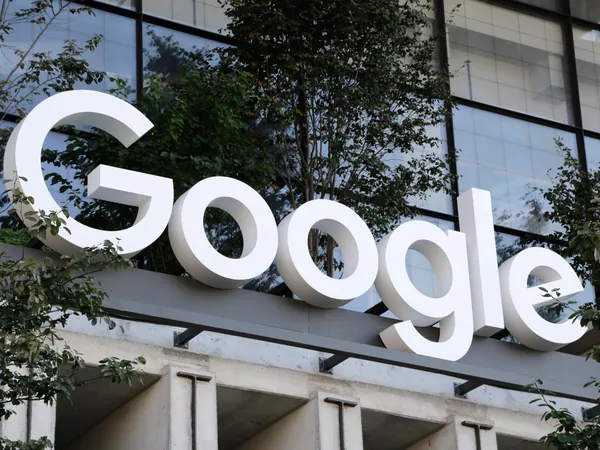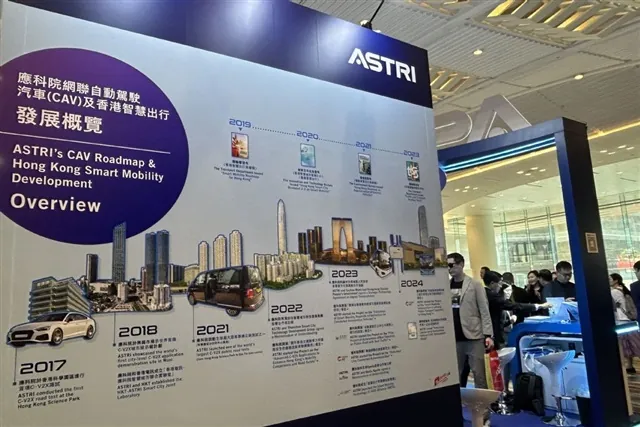
Google Partners with Kairos Power to Revolutionize AI Energy Needs with Small Nuclear Reactors
2024-10-15
Author: Wai
Introduction
In a groundbreaking move, Google has officially entered into a partnership with the innovative startup Kairos Power, aiming to harness the power of small nuclear reactors to fuel the burgeoning field of artificial intelligence (AI). This landmark agreement promises to not only change the way tech giants source their energy but also to potentially pave the way for a transformative shift in the energy sector.
Details of the Agreement
Under the terms of this agreement, which was announced on Monday, Google will support the construction of seven small nuclear reactors, each with the potential to generate 500 megawatts of electricity. The inaugural reactor is slated to begin operations by 2030, followed by additional reactors coming online in subsequent years. This initiative reflects a strategic response to the escalating energy demands driven by AI advancements, which are rapidly becoming integral to various sectors, enhancing business processes, and bolstering economic growth on a national scale.
Expert Insights
Michael Terrell, Google's senior director of energy and climate, emphasized the importance of this initiative: “The grid needs new electricity sources to support AI technologies that are powering major scientific advances.” He expressed optimism that this partnership would accelerate the deployment of a clean and reliable energy source, unlocking AI's full potential for individuals and businesses alike.
Industry Trends
This agreement signals a growing trend among major tech companies, with Google, Microsoft, and Amazon currently leading the charge in exploring nuclear energy as a viable solution for powering their data centers. Just last month, Microsoft struck a deal with Constellation Energy to reactivate a decommissioned nuclear reactor at Three Mile Island in Pennsylvania, ensuring power supply for the next two decades. Similarly, Amazon finalized a contract earlier this year to acquire a large data center campus in Pennsylvania that sources energy from an adjacent nuclear facility.
Global Context
As data centers account for roughly 3 percent of global electricity consumption—a figure projected to surge as AI technologies evolve—the demand for new power sources is more pressing than ever. Proponents of small modular reactors (SMRs) argue that they offer a more cost-effective and less time-consuming alternative to traditional large-scale nuclear reactors, transforming the landscape of nuclear energy.
Current Challenges
However, this promising technology is still in its developmental stages, with only a handful of these reactors operational worldwide in countries such as Russia, China, and India. Mike Laufer, CEO of Kairos Power, expressed enthusiasm for the partnership with Google, highlighting the benefits of their collaborative approach, stating, "By coming alongside in the development phase, Google is more than just a customer. They are a partner who deeply understands our innovative approach and the potential it can deliver."
About Kairos Power
Founded in 2016 with support from the U.S. Department of Energy, Kairos Power is on a mission to expedite the development of pioneering nuclear technology. The company aims to redefine the energy landscape in the United States and beyond through clean and innovative solutions.
Conclusion
As this partnership unfolds, the implications for the future of energy and AI are profound. Will we witness a new era of energy independence for tech giants, or could this be the catalyst for a broader acceptance of nuclear power in combating climate change? Only time will tell, but one thing is certain: Google and Kairos Power are poised to change the narrative around nuclear energy in the age of AI.


 Brasil (PT)
Brasil (PT)
 Canada (EN)
Canada (EN)
 Chile (ES)
Chile (ES)
 España (ES)
España (ES)
 France (FR)
France (FR)
 Hong Kong (EN)
Hong Kong (EN)
 Italia (IT)
Italia (IT)
 日本 (JA)
日本 (JA)
 Magyarország (HU)
Magyarország (HU)
 Norge (NO)
Norge (NO)
 Polska (PL)
Polska (PL)
 Schweiz (DE)
Schweiz (DE)
 Singapore (EN)
Singapore (EN)
 Sverige (SV)
Sverige (SV)
 Suomi (FI)
Suomi (FI)
 Türkiye (TR)
Türkiye (TR)